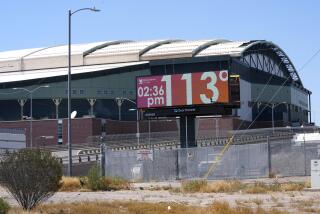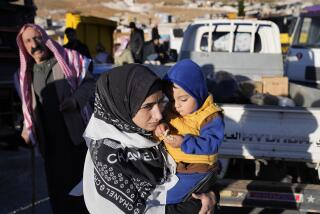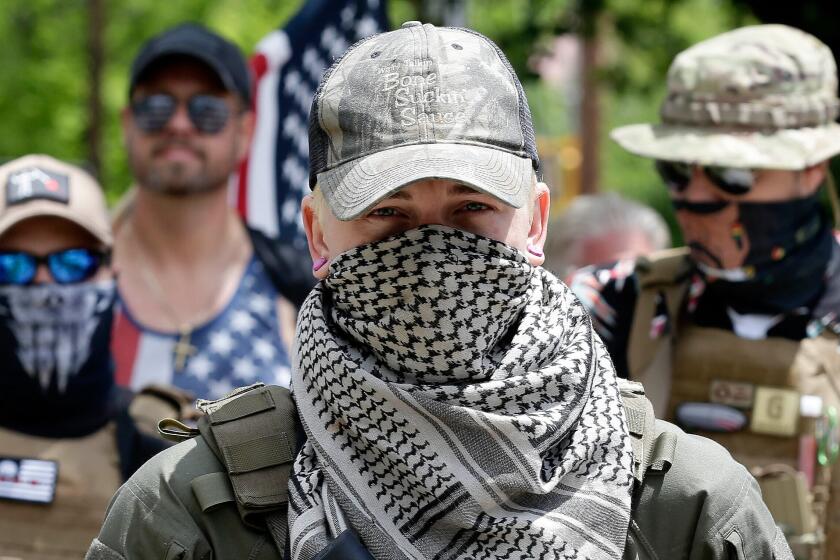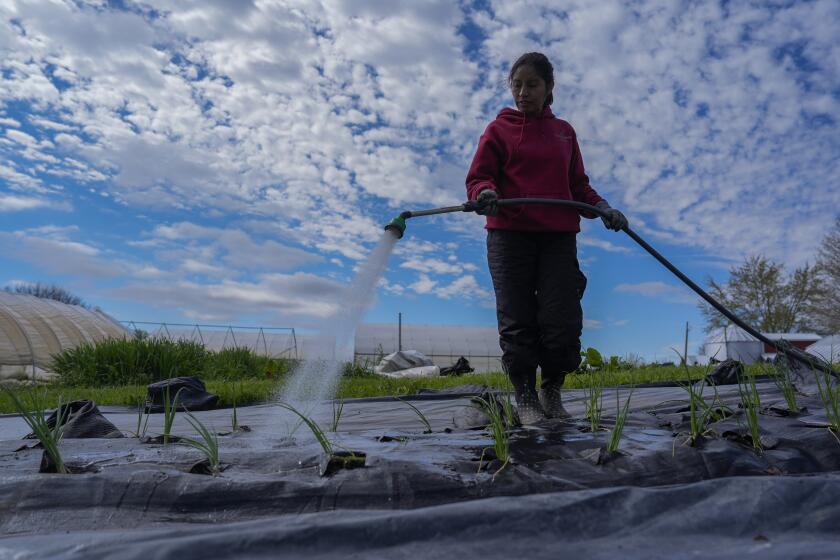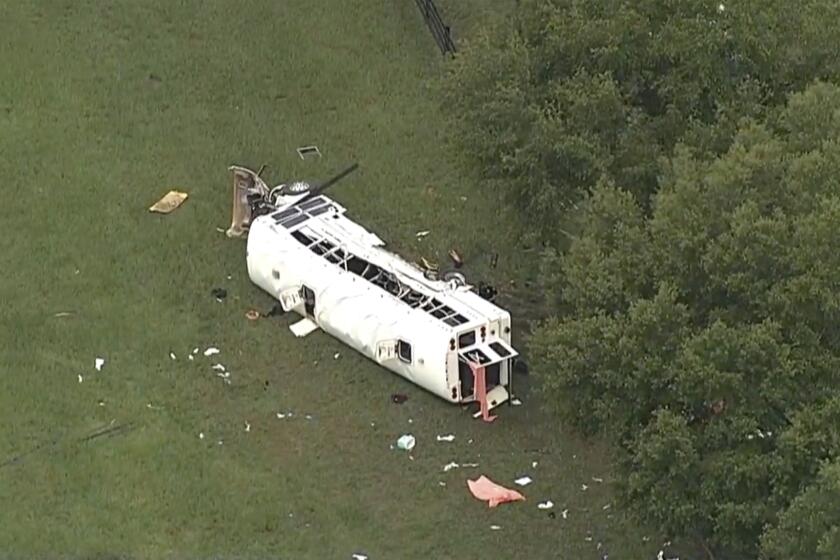Where There’s a Well There’s a Way, Diplomats Prove : Kuwait: Americans dig one on embassy grounds, then wash their cars in a ‘take that’ gesture for the Iraqis.
Two months after Iraqi President Saddam Hussein tried to close the U.S. Embassy in Kuwait by cutting off its water supply, American diplomats demonstrated their defiance by washing their fleet of automobiles in a display of conspicuous consumption, the State Department said Wednesday.
Department spokeswoman Margaret Tutwiler said Ambassador W. Nathaniel Howell telephoned Secretary of State James A. Baker III on Wednesday to relate the latest “take that” gesture by the embattled Americans, who have held out in the harsh desert climate since Iraq ordered all foreign embassies in Kuwait to close by Aug. 24.
Howell reported that he and his staff recently dug a shallow well on the embassy grounds, tapping into a supply of brackish water too salty to drink but just fine for bathing and laundry.
Tutwiler said the ambassador related that the water was used for “long-overdue baths, (to) clean their clothes, and--to show the Iraqi guards that they can manage and are very resourceful--they washed their cars.”
Hussein ordered the embassies in Kuwait to close because Baghdad claims to have annexed the emirate, making it Iraq’s 19th province. Although the Iraqi authorities did not try to force their way into any of the embassies, they surrounded each with troops and cut off supplies of water and food. Since the siege began, all Western nations but the United States, Britain and France have given up.
Early in the crisis, U.S. officials predicted that the embassy could hold out for “several weeks.” Almost nine weeks later, Tutwiler said it appears that the eight U.S. diplomats--four men and four women--can persevere for “several weeks more.”
Relating the Baker-Howell telephone conversation, Tutwiler said: “The secretary commended (Howell) for the extraordinary job that he and his colleagues are doing there at our embassy. Ambassador Howell told the secretary that ‘we’re hanging in’ ” and appreciate the comments of Baker and the President.
A State Department official said several private American citizens have taken refuge at the embassy in addition to the eight diplomats. But he would not identify the others or say how many there are because the U.S. government is determined to avoid giving Iraqi authorities any information that might help them round up Americans or other foreigners.
In the days after Iraq’s Aug. 2 invasion of Kuwait, the official said, 120 to 130 people crowded into the embassy compound in search of sanctuary. Most of those individuals have since left the embassy, many with permission to leave Kuwait.
“A lot of those people brought food and other supplies with them when they came,” the official said. “They really stockpiled a lot. There are far fewer people there now.
“They are not getting anything from outside,” he added. “Everything is inside the compound. It is not a particularly enjoyable experience for them, but they have enough water and food to last several more weeks.”
Paradoxically, the official said, the most pressing problem now is a shortage of fuel, not usually a consideration in a nation that floats atop a vast lake of oil.
U.S. officials are determined to keep the embassy open as long as possible in a tangible display of contempt for Hussein and his claim to have annexed Kuwait. The embassy compound also serves as a haven and a point of contact for Americans trapped in the emirate.
Howell, a career Foreign Service officer, has been a flamboyant player in the game of defiance. In an earlier telephone conversation, the ambassador told Baker that the embassy was keeping the American flag “flying in their faces.”
U.S. diplomats at the United Nations will seek a vote in the Security Council, perhaps as early as Friday, on a resolution condemning Iraq for trying to starve out the embassies in Kuwait. The resolution would order the Baghdad authorities to permit the immediate resupply of the missions.
No one really believes that Hussein will comply with that resolution, any more than he has with measures ordering him to end the occupation of Kuwait. However, the Bush Administration believes that a Security Council vote would underline the continuing presence of the U.S., British and French embassies.
Meanwhile, Abdul Razzak al Hashimi, the Iraqi ambassador to France, said Wednesday in Paris that the government in Baghdad hopes the departure of more than 300 French citizens detained in Iraq and Kuwait can begin today.
French television reported from Baghdad that the detainees were gathering at the French Embassy in hopes of leaving the country.
Staff writer Nick B. Williams Jr., in Amman, Jordan, contributed to this report.
More to Read
Start your day right
Sign up for Essential California for news, features and recommendations from the L.A. Times and beyond in your inbox six days a week.
You may occasionally receive promotional content from the Los Angeles Times.

